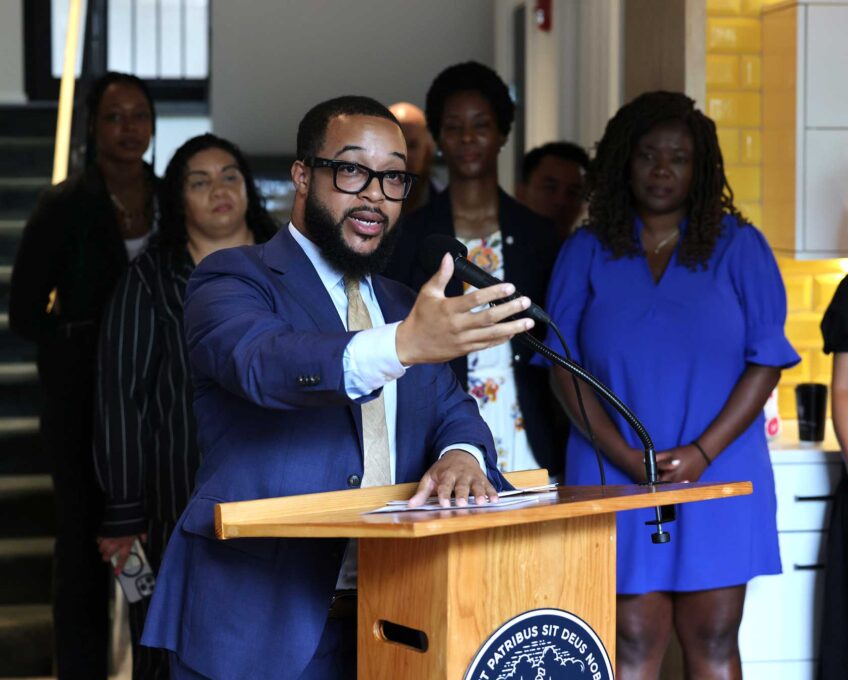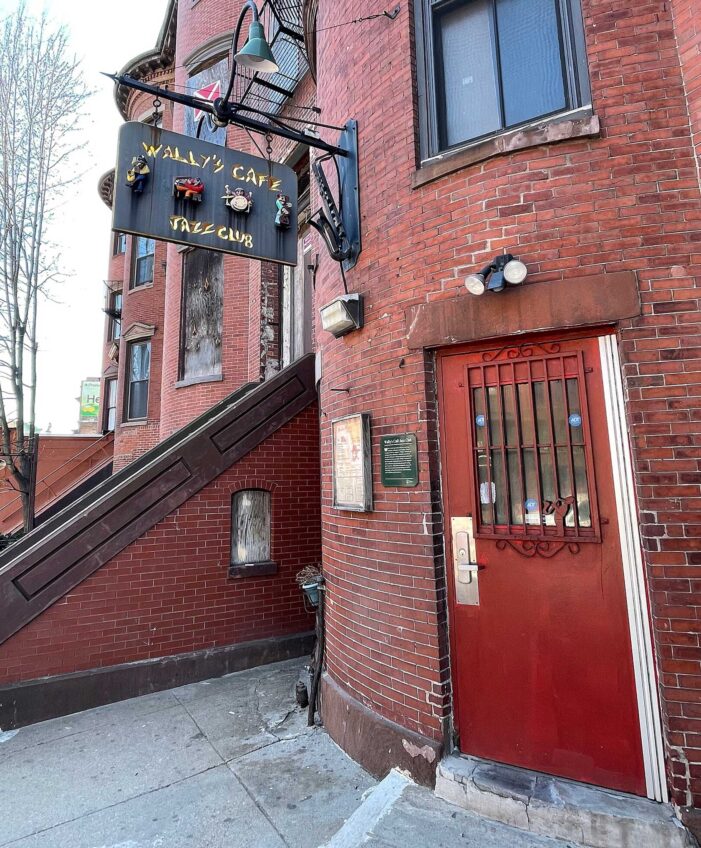Chanda Smart believes affordable housing should be built by those who’ve lived in it

Banner Business Sponsored by The Boston Foundation
Chanda Smart has a motto: People who build affordable housing never had to live in it.
Smart knows what it is to have — and lose — affordable housing. She knows what it is to be a single mother and to land a $30,000-a-year administrative job at Deloitte, only for that new job to mean she would no longer be eligible for her income-restricted unit. She knows the pain of paying $350 for your rent one month and more than triple that the next — of needing to move apartments every year.
She brings that knowledge to her role as chief executive of OnyxGroup, the development and brokerage firm she launched in 2021 that is already in business with some of the biggest names in Boston real estate. This month, Onyx and its partners break ground on a 141-unit affordable housing development in Foxborough, the firm’s first project to start construction.
Smart and Onyx are teaming up with The Peabody Cos., one of the region’s largest managers of affordable housing, on the Foxborough project. She is part of The HYM Investment Group’s team seeking to put two large lab buildings and hundreds of apartments and condos on an eight-acre Roxbury parcel. Onyx is also the lead on two housing projects in Brockton.
“We have a long way to go, but we’re not where we started. We’re a different company,” Smart said. “Having the perseverance to stay in the space has opened up doors for us that, in my mind, will not only make it easier for us to develop but make it easier for others that come after us to develop. That’s what excites me.”
The Foxborough groundbreaking is a milestone on a real estate career that began much later than Smart first wanted. When her daughter was a toddler almost 30 years ago, Smart began taking a course to get her broker’s license but realized she could not afford the lack of steady income or health insurance. Instead, she took on administrative roles, only returning to real estate in 2016.
At first, Smart worked as a real estate agent in Dorchester and Roxbury for one of the big real estate brokerages. She also hosted probate and estate planning workshops to help homeowners, particularly older homeowners of color, hold onto their properties. But Smart felt the brokerage was not meeting the needs of the residents of those neighborhoods. A colleague recommended she look up a lawyer named Shabnam Mashmasarmi.
“I sent her this long soliloquy on LinkedIn about my frustrations about real estate, my frustrations about people being preyed upon,” Smart said. Soon they partnered together and formed what became OnyxGroup.
Onyx was initially a residential brokerage only, a business it continues today. (The firm has one full-time employee in addition to Smart and Mashmasarmi, as well as four part-time agents.) It was not until a neighbor told Smart she should look into development that the idea was planted.
Smart and Mashmasarmi’s first go at development was a response to a request for proposals for a city- and state-owned parcel on Tremont Street in Roxbury. Onyx did not win the bid, “but it gave us a crash course in how to create public and private partnerships, how to navigate the community, how to work with the city and state,” Smart said.
That experience led directly to a meeting with Karen Fish-Will and Melissa Fish-Crane, the sisters who run Peabody, and the formation of the team that won its bid to redevelop a former state hospital into affordable housing for those 55 and older.
“Her passion and her life experiences — we felt as though there was synergy there, and we went for it,” Fish-Crane said.
Smart’s rising profile in real estate has led to appointments on Mayor Michelle Wu’s rent stabilization committee and a board seat at the MBTA. But the 48-year-old does not see politics in her future, saying with a laugh she likes saying what is on her mind.
She is focusing the next few years on “creating effective partnerships,” she said.
“We’re realizing the power of collaboration,” Smart said. “One organization should not have to incur the entire cost of development. Sharing the costs, it makes it a little bit more palatable to build.”
Greg Ryan is senior reporter for the Boston Business Journal






